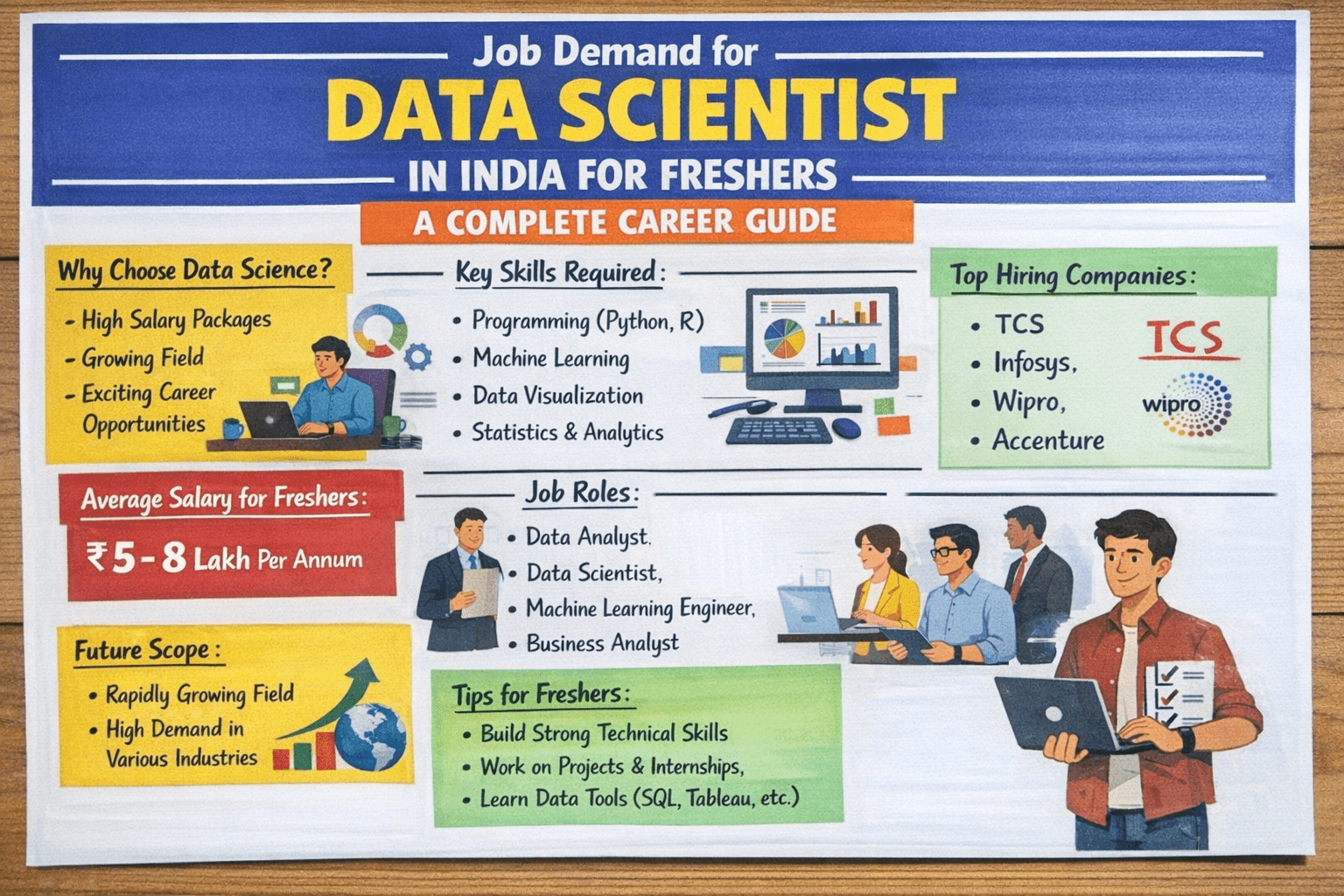
Introduction - A DevOps Tools List You Should Know
In the path of technological evolution – studying technically relevant DevOps tools list is now not simply a choice, it has become a necessity. With businesses adopting cloud, automation, and CI/CD practices along with growing demand, the DevOps engineer with practical experience utilizing the right DevOps tools and technology is in high demand.
Naresh I Technologies has over 22 years of experience training people in India. We help learners master tools like Docker, Kubernetes, Jenkins, Terraform, and AWS as part of our DevOps with placement assistance and DevOps with AWS training. We teach more than just tools – we teach realistic scenarios and review live projects for learners to exhibit their mastery of tools, and we connect to hiring partners.
In this article, we will discuss the below-mentioned devops tools list, why it is important, and, what hovering devops list you might need to learn, and the devops tools list for you to start from in your modern DevOps career.
What Tools Belong to the DevOps Tools List?
The devops tools list consists of software and platforms utilized throughout the development lifecycle: from coding and version control, to build/deploy, through monitoring and security.
The following are 12 crucial tools that every aspiring DevOps engineer should become familiar with:
- Git & GitHub/GitLab: Version control and code collaboration.
- Jenkins: CI/CD automation server to build, test, deploy pipelines.
- GitHub Actions/GitLab CI: Cloud-native CI/CD environments built in with Git.
- Docker: A containerization technology that allows you to “wrap” your apps in all of their dependencies.
- Kubernetes: Container orchestration, scaling, and management.
- Helm: A Kubernetes package manager to provide usable charts.
- AWS (EC2, S3, IAM, EKS, CloudWatch): The cloud platform for Dev Ops and Infrastructure.
- Terraform: Infrastructure as Code (IaC) for provisioning and managing Infrastructure.
- Ansible: Configuration management and automating across servers.
- Prometheus + Grafana: Monitoring stack to collect metrics and visualizing dashboards.
- Argo CD/Flux: GitOps tools to automate deployment.
- SonarQube: Static code analysis for quality and security.
Each of the tools identified above does its own thing, but they all come together to create a very capable pipeline for software stack development and the operations are happening together in one place.
Why It Matters (and What It Solves)
- Automation & Speed: Products such as Jenkins, CI pipelines, and IaC mean less manual develops meaning hardware and product releases are happening faster.
- Consistency & Trust: Tools such as Docker + Kubernetes ensure that all environments act the same from dev to test and into prod.
- Scale & Resiliency: Cloud infrastructure and orchestration products help your applications scale during load.
- Monitoring & Alerting: Products such as Prometheus/Grafana will be alerting you prior to issues forming.
- Security & Code Quality: SonarQube, IAM policies, GitOps type tools embed security in the pipeline.
These products designed the DevOps roadmap tools recruiters expect in 2024-25.
Who Should Learn This List of DevOps Tools?
- Freshers and students who want to work in DevOps as their first role.
- Software developers who want to move to the cloud / deployment.
- System administrators / Infra engineers who want move towards DevOps related responsibilities.
- QA / Test engineers that want to be responsible for the automation, CI/CD, and scale quality.
- Career changers / Professionals who have transferable experience from other domains that want to reskill or upskill in DevOps.
Regardless of your background, learning this devops tools list will ultimately place you in a future-proof, high-demand career path.
When & How to Learn the DevOps Tool Stack
Here is a suggested learning plan over a 10- to 12-week period:
| Weeks | Focus Area | Tools |
|---|---|---|
| 1–2 | Fundamentals & Version Control | Git & GitHub / GitLab |
| 3–4 | CI/CD Automation | Jenkins / GitHub Actions |
| 5–6 | Containerization & Orchestration | Docker + Kubernetes + Helm |
| 7–8 | Cloud Infrastructure | AWS core services & EKS |
| 9 | Infrastructure as Code | Terraform |
| 10 | Configuration & Monitoring | Ansible + Prometheus / Grafana |
| 11–12 | GitOps / Code Quality | Argo CD + SonarQube |
| Capstone | Full pipeline deployment project |
You will do real-world projects e.g. build a CI/CD pipeline for a micro-service, deploy on Kubernetes on AWS, configure monitoring and alerts
In Which Industries and Geographies Have Originated These DevOps Tools?
- IT services and product organizations: embrace the full DevOps stack across modules (Collab, CI/CD, testing, monitoring, etc.).
- Cloud-native startups: heavily rely on Kubernetes, Terraform, and GitOps Workflow.
- Fintech and Banking: highly compliant and secure, use SonarQube, audit logs, and automated pipelines.
- E-commerce/SaaS: essential to scale the infrastructure based on traffic drops.
In India, major hiring areas include Hyderabad, Bengaluru, Pune, Chennai, and Gurugram.
As a case in point, learners who have undergone our DevOps training with placement assistance, have secured jobs in all these cities by learning this DevOps tools stack at NareshIT.
Advice for Effectively Working Through this Toolkit
- Start off with the first three: Linux, Networking, and Git.
- Take a course with Devops with AWS training at NareshIT / or DevOps for Placement.
- Practice daily in the lab, create a simple pipeline, deploy in AWS, and setup monitoring, and etc.
- Lastly, make sure to apply the tools. It can be something private (not a public-facing product); for any case, have work in ci/cd pipeline or infrastructure/incident monitoring, and etc.
- Build a GitHub portfolio, featuring ci/cd (with or without full-stack), K8s, and Infrastructure.
- Certifications: AWS DevOps Engineer, K8s CKA, and others.
NareshIT provides placement help, resume workshops, and mock interviews; they have excellent connections with many companies to help you get placed.
Frequently Asked Questions-DevOps Tools List
Q1. What do you suggest I should learn first?
Ans: We recommend Git & GitHub to begin, followed by Jenkins, Docker, AWS — these are the core building blocks.
Q2. Do I need to know everything on the Job list to get hired?
Ans: Absolutely not. Start with the basics, which are Git, Jenkins, Docker, AWS. If you’re not ready, just to start, you can gradually confirm Kubernetes, Terraform and your monitoring services
Q3. How long will it take to come up to speed on the devops tools list?
Ans: With structured learning and projects, you looking at 10-12 weeks to build basic competence in the tools.
Q4. Do I need coding skills to work with the DevOps tools?
Ans: Some basic scripting skills would help (Python / Bash), but no that’s not a dealbreaker. While some of the work will be with the tools will be configs or YAML setup, but you will be working with scripts.
Q5. Does NareshIT have hands-on support on each of these tools?
Ans: Yes our DevOps training with a placement guarantee will include live labs, a tutorial project on each of these tools, and mentor support until placed.
Conclusion
This list of DevOps tools will help you build a modern, automated, and scalable skillset. From Git and Jenkins to Kubernetes, Terraform, monitoring tools, and GitOps — knowing these tools will set you up for the high-growth DevOps roles in 2025.
Naresh i Technologies support training, real-time labs, and a placement network will have you not just learning the tools but applying them with subtle skill and getting hired.
Enroll today in our DevOps Training with Placement assistance or DevOps with AWS New Batches.
Book your Free Demo now on Naresh i Technologies KPHB.




